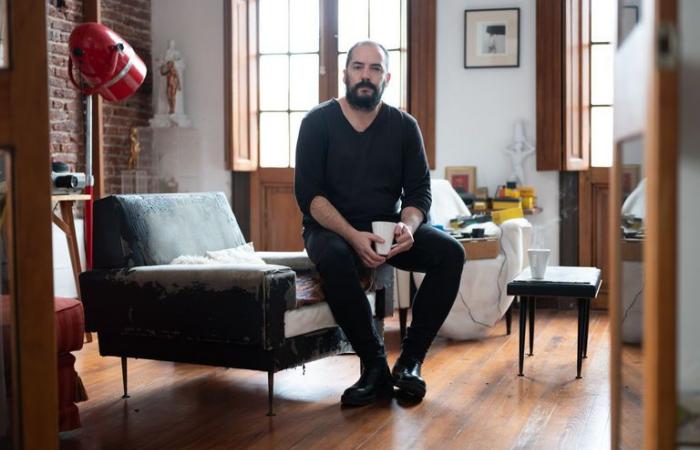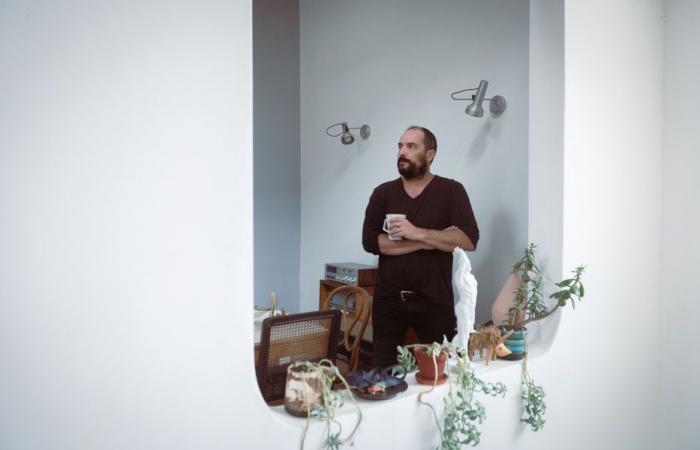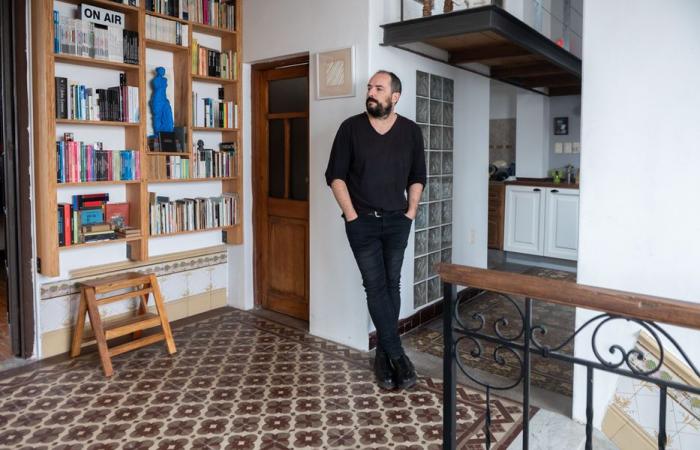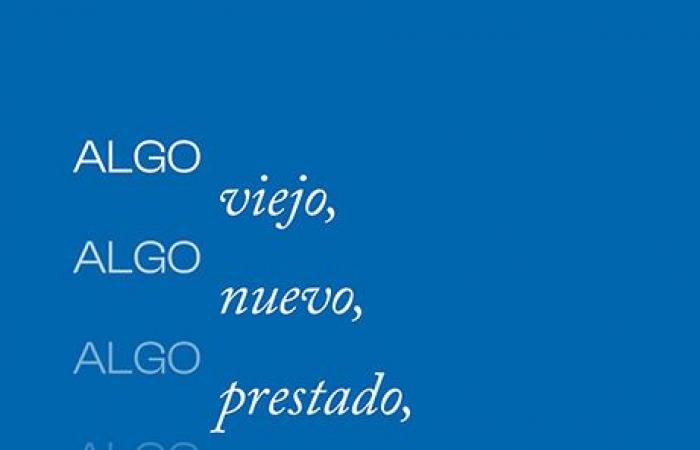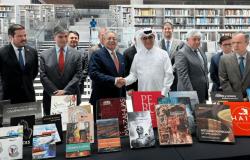This book comes to corroborate, at least for me, what I have been repeating for years with iron conviction,” says Fernando Foglino (1976) about Something old, something new, something borrowed, something sad (2024). Foglino is a poet and visual artist, trained at the Faculty of Architecture, and considers that his visual works have always been based on literature. Since 2008, he has had numerous exhibitions in national museums and in other countries. In addition, he carried out artistic residencies in Berlin, Paris, Beijing, Milan and Antofagasta.
Furthermore, the author claims that poetry and narrative are “the only communication tools truly free of economic and scale restrictions.” Something old, something new, something borrowed, something sad Foglino addresses in a chronological manner the coincidences, tricks, processes and anecdotes surrounding his visual work. It includes everything from childhood stories to scandals on social media. “In my work, the old and the new coexist. I belong to a generation of continuous technological transition, from the black and white television of my childhood to the artificial intelligence of today. This keeps me in a state of continuous wonder that encourages me to create,” explains Foglino.
Something old, something new, something borrowed, something sad It was a project selected by the Competitive Fund for Culture.
Photos: Javier Noceti
Would you rather travel to the future or the past?
I prefer to travel to the past, to travel a lot to the past. Every time I play that game of imagining what time and place I would like to fall into, or appear from behind a rock, it is difficult for me to decide on just one option. I would like, then, something like what happened in that drawing I saw as a child, “Once upon a time there was a man,” in which the same characters go through the entire story, or at least the story that is in the books. In chapter 26, the last of the series, it is predicted that garbage will cover the world. Seen and considering, I prefer the trip to the past. Nobody assures that the future is a possibility. In the book I quote a quote from Leonard Cohen that says: “Most of us live in cities that no longer exist except as traffic jams.”
What book by another author affected you in such a way that you would like to have that same effect on your readers?
I remember the last book perfectly, it was Kassel does not invite logic (2014) by Enrique Vila-Matas, but luckily it has happened to me many times. With books, but also with songs, exhibitions or films. The effect is always the same, having to stop, pause to write down some idea that arises from what I am seeing so as not to let it pass. At the beginning of the book I say: “I hope it works like the books I frequently visit, the old books I always read or the new ones that grow old with me. They are books that I read, but above all they push me to write.”
Top 3 books you gave/recommended the most.
The thinking machine in Gladys (1970) by Mario Levrero.
Soapy Water by Elder Silva.
The spice box of the earth (1979) by Leonard Cohen.
What five things would you keep in a time capsule?
There is a time capsule in Soriano where, among other things, a VHS was kept and they are already wondering how they are going to play it in 2088. I would only put things that become useless, which show that the only treasure is time.
If you could co-write a book with any author, living or dead, who would it be and why?
It would be with my literature teacher at the Casa de la Cultura del Prado, Walter Ortiz y Ayala, there would be a lot of tobacco smoke and it would be a book of sonnets that would make us laugh as we looked for each rhyme.
If you were in the National Library of Uruguay and could steal a book without anyone knowing, which one would it be?
I would steal the collection of Sunday supplements from the newspaper El Día, they are incredible.
Tell us what you are reading now.
Art and public space in Montevideo (1959-1973)by Miriam Hojman
The first verse that comes to mind.
“I am neither sad nor happy. That is the destiny of verses. I wrote them and I must show them to everyone.”
It is the beginning of a poem by Alberto Caeiro, one of the few that I know by heart.
What book did you borrow from your library and has not been returned to this day? And vice versa?
I don’t lend books, nor do I borrow them because I wouldn’t return them.
Photos: Javier Noceti
As a reader, what do you like to find in a story?
I like to find reality. As has already been said: “reality is richer than imagination.”
Your idea of happiness and your idea of misery.
I feel happy when I have nothing pending, at the same time I feel very miserable when I am not doing anything.
What book do you never get bored of rereading?
Grapefruit, an instruction book by Yoko Ono (1964).
Because Something old, something new, something borrowed, something sad?
For the title I paraphrase an old rhyme to describe the elements that make up the works I have made over the last 10 years and are the center of this book. Something old, due to the continuous reference and study of the past. Something new, due to the use of new technologies. Something borrowed, from the winks and associations with other contemporary artists, appropriating their works and reinterpreting them. Something sad, in relation to the poetic. In my work, the old and the new coexist. I belong to a generation of continuous technological transition, from the black and white television of my childhood to the artificial intelligence of today. This keeps me in a state of continuous wonder that encourages me to create.
How long did it take you to write this book, from the conception of the idea to the final publication?
At least five years, although the book gave a lifeline to some text that had been written before.
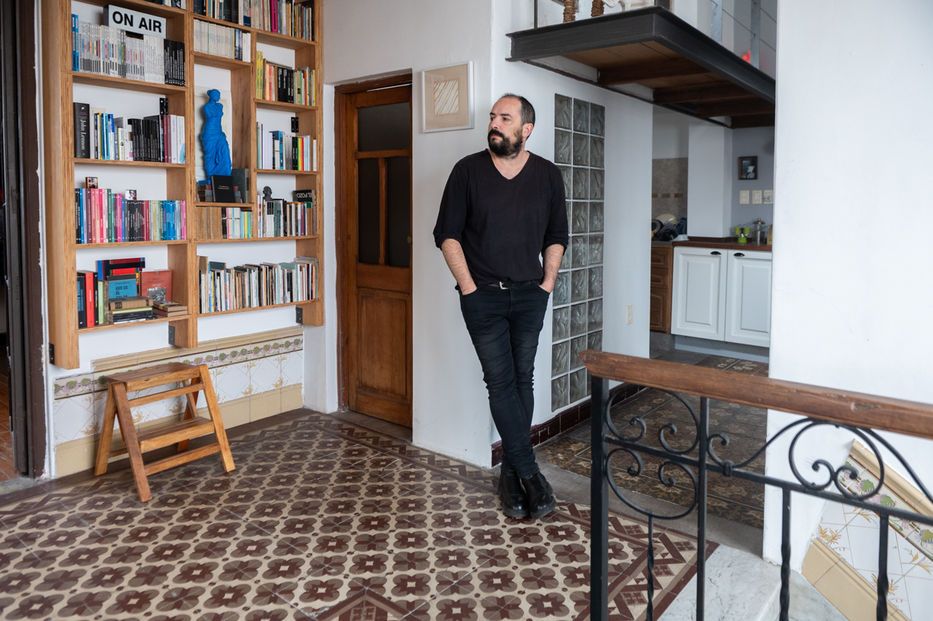
Photos: Javier Noceti
Why did you choose those headings?
I use epigraphs or sections as intertextuality, a way of establishing a dialogue with certain favorite readings.
If you had to describe your book in one sentence, how would you phrase it?
The phrase would be the title, I tried to describe it there.
What’s the most unexpected reaction you received to this book?
When I received support from a competitive fund for its publication.
What advice or inspirational quote would you give to other writers who are searching for their literary voice and style?
I rule out advising reading because I think it is obvious, but I recommend doing the exercise of reading and reading yourself aloud. The voice of writing often has or seeks a sound, a music.
If you could become fluent in any language overnight, where would you travel to try it out?
Arab and would travel to Egypt.
Write for…
Deciding between this, or everything else.
__________________________________________________________________________
Fragment of Something old, something new, something borrowed, something sad:
It was not common to wear a zunga in the Parque del Plata of the eighties. It is still not common in 2021 and even less so if the design of the zunga is a provocative animal print. Leopard zunga. That is why, in secret, everyone in the neighborhood had baptized our neighbor Tarzan.
I clearly remember surrounding him in the front yard of his chalet, four or five of us children hovering around him like flies, insisting that he repeat his usual grace. The trick was to ask him the time. Tarzan, with his two meters of height and his always tanned torso, raised his hand above his forehead, blocking the midday sun with his enormous outstretched palm, leaving the children in the shade, and consulted the sky for long seconds. Then he would lower his hand and tell us, with implacable certainty: “It’s a quarter past twelve.”
Then there was silence, like when the ball is still in the air after a penalty, and Catalina looked at her childish yellow watch to translate, with difficulty, the position of Mickey Mouse’s little arms that indicated the time. The hands drew a perfect L, then she shouted enthusiastically: “A quarter past twelve!”
“Weeeeeeeeeen!”, we all shouted in chorus, just like a last-minute goal, and without even saying thank you, we went back to playing until we got bored to try one more time until we failed. Tarzan, no matter how many times we tested him, he would never fail us.
I cannot say how long it took us to realise the trick, nor do I remember the moment. The distraction manoeuvre, the parodic gesture, the frown crowning his enormous body, the half-closed eyes and the dazzled effort to read the time in the sun, prevented us from realising that he always wore a wristwatch on his right hand. Instead of looking at the sun, as the king of the jungle would do, he looked sideways to tell us the time with absurd precision. We must have laughed out loud when we discovered it, but nobody felt betrayed. Although we knew the trick, we always kept asking him questions to see him get it right again and again.
Each lie creates a parallel world, the world in which it is true.
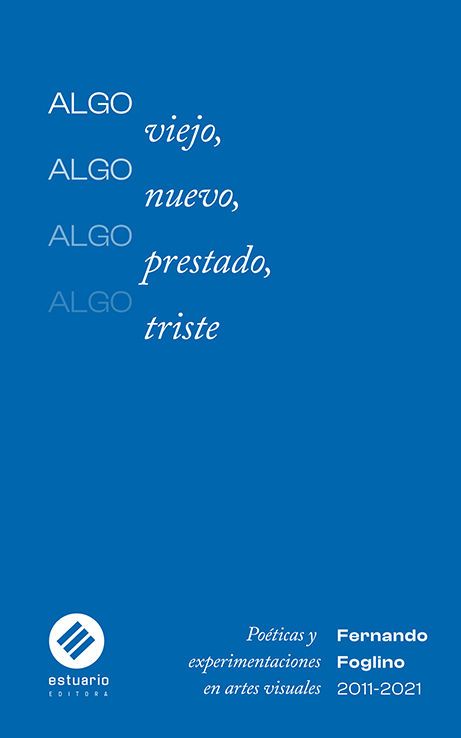
__________________________________________________________________________

